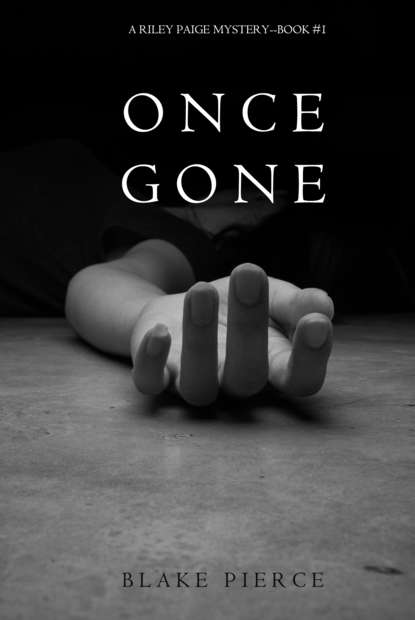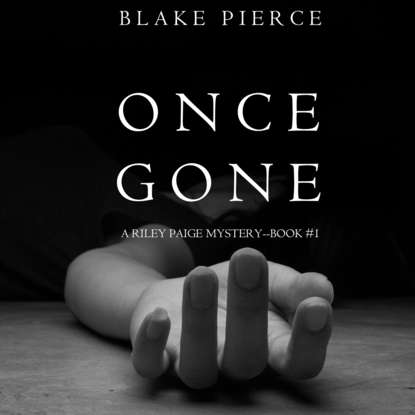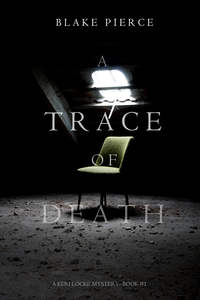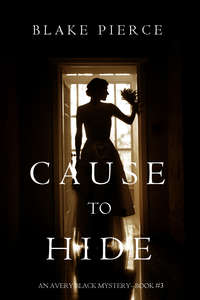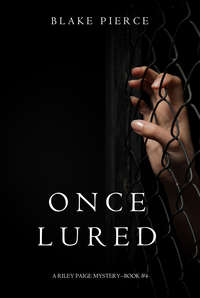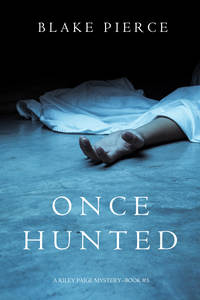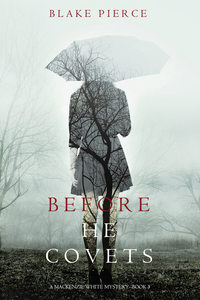
Полная версия
Once Shunned
As they walked, Jenn remarked, “Two ice pick murders, two apparently unrelated victims—maybe even random. Does that sound weird or what?”
“We ought to be used to weird by now,” Riley said.
Jenn scoffed. “Yeah, ought to be. I don’t know about you two, but I’m not there yet.”
With a chuckle, Bill said, “Look at it this way. I hear the weather in Connecticut’s lovely this time of year.”
Jenn laughed as well and said, “It sure ought to be nicer than Mississippi.”
Riley grimaced as she remembered the heavy, suffocating heat in the disagreeable coastal town of Rushville, Mississippi.
She felt sure that late summer weather in New England couldn’t help but be an improvement.
Too bad we’re probably not going to get much of a chance to enjoy it.
*When the plane landed at the Tweed–New Haven Regional Airport, Special Agent in Charge Rowan Sturman greeted Riley and her colleagues on the tarmac. Riley had never met Sturman, but she knew him by reputation.
Sturman was in his early forties, about the same age as Riley and Bill. In his younger years he’d been considered a promising, up-and-coming agent who was expected to climb high in the ranks of the FBI. Instead, he’d contented himself with running the New Haven FBI office. Rumor had it that he simply hadn’t wanted to move to D.C. headquarters or Quantico or anywhere else. His roots and family were planted firmly right here in Connecticut.
Of course, Riley figured, he might not have had an appetite for the political maneuvering that could play a role in those power centers.
She could relate to that possibility.
Riley liked being at the Behavioral Analysis Unit because investigating strange personalities drew on her unique abilities. But she hated the way the power plays of higher-ups sometimes interfered with investigations. She wondered how soon that sort of thing would kick in over the death of an heir to great wealth.
Riley immediately found Sturman to be warm and likeable. As he walked them to a waiting van, he spoke in a pleasant New England twang.
“I’m taking you straight to Wilburton, so you can get a look at where Robin Scoville’s body was found. That’s the fresher crime scene, and I’ve called the local police chief to meet us there. Later I’ll show you where Vincent Cranston was killed. I sure hope you folks can figure out what’s going on, because my team and I can’t make any sense of it.”
Riley, Bill, and Jenn sat together in the van as Sturman drove north. Jenn opened her laptop computer and started searching for information.
Sturman said to Riley and her colleagues, “I’m glad you’re here. My team and I can only do so much with the skills and resources we’ve got on hand. We’re trying everything we can think of, though. For one thing, we’re contacting hardware stores throughout the region to get whatever information we can on recent ice pick purchases.”
“That’s a good idea,” Riley said. “Any luck so far?”
“No, and I’m afraid it’s kind of a long shot,” Sturman said. “At this point we’re not getting a lot of names, mostly only people who bought their ice picks with credit cards, or the storekeepers had some other record. Out of those names we’re not sure what we might be looking for. We’ll just have to keep at it and see.”
Riley remarked, “Using an ice pick as a murder weapon seems kind of quaint to me.”
She thought for a moment, then added, “On the other hand, what else is an ice pick useful for anymore?”
Jenn scowled as she scanned the information that was appearing on her screen.
She said, “Not much—at least not for a century or so. Back in the days before refrigerators, people kept their perishables in old-fashioned iceboxes.”
Bill nodded and said, “Yeah, my great-grandmother told me about those. Every so often, the iceman would come to your house to deliver a block of ice to keep your icebox cool. You’d need an ice pick to break chips off the block of ice.”
“That’s right,” Jenn said. “After iceboxes got replaced by refrigerators, ice picks got to be a popular weapon for Murder Incorporated. Bodies of murder victims sometimes had twenty or so ice pick wounds.”
Bill scoffed and said, “Sounds like kind of a sloppy weapon for professional hit jobs.”
“Yeah, but it was scary,” Jenn said, still poring over the screen. “Nobody wanted to die that way, that was for sure. The threat of getting killed by an ice pick helped keep mobsters in line.”
Jenn turned the screen around to share her information with Bill and Riley.
She said, “Besides, look here. Not all ice pick murders were messy and bloody. A mobster named Abe Reles was the most feared hit man of his time, and the ice pick was his weapon of choice. He’d stab his victims neatly through the ear—just like our murderer. He got so good at it that sometimes his hits didn’t even look like murders.”
“Don’t tell me,” Riley said. “They looked like the victims died from a cerebral hemorrhage.”
“That’s right,” Jenn said.
Bill scratched his chin. “Do you think our killer got the idea from reading about Abe Reles? Like maybe his murders are some kind of homage to an old master?”
Jenn said, “Maybe, but maybe not. Ice picks are coming back in style with gangs. Lots of young thugs are doing each other in with ice picks these days. They’re even used in muggings. Victims are threatened with an ice pick instead of a gun or a knife.”
Bill chuckled grimly and said …
“Just the other day I went into a hardware store to buy some duct tape. I noticed a rack with brand new ice picks for sale—‘professional quality,’ the labels said, and ‘high carbon steel.’ I wondered at the time, just what does anybody use something like that for? And I still don’t know. Surely not everybody who buys an ice pick has murder in mind.”
“Women might carry them for self-defense, I guess,” Riley said. “Although pepper spray is probably a better choice, if you ask me.”
Jenn turned the screen toward herself again and said, “As you can imagine, there hasn’t been much success passing laws to restrict ice pick sales or possession. But some hardware stores voluntarily ID ice pick buyers to make sure they’re over twenty-one. And in Oakland, California, it’s illegal to carry ice picks—the same as it’s illegal to carry switchblades or similar stabbing weapons.”
Riley’s mind boggled at the thought of trying to regulate ice picks.
She wondered …
How many ice picks are there out there?
At the moment, she and her colleagues knew of at least one.
And it was being put to the worst possible use.
Agent Sturman soon drove the van into the little town of Wilburton. Riley was struck by the sheer quaintness of the residential district where Robin Scoville had lived—the lines of handsome clapboard houses with shuttered windows, fronted by row after row of picket fences. The neighborhood was old, possibly even historical. Even so, everything gleamed with paint so white that one might think it was still wet.
Riley realized that the people who lived here took great pride in their surroundings, preserving its past as if the neighborhood were a large outdoor museum. There weren’t many cars on the streets, so it was easy for Riley to imagine the town in a bygone era, with horse-drawn buggies and carriages passing by.
Then it occurred to her …
An iceman used to make his regular rounds here.
She imagined the bulky cart carrying loads of ice, and the strong man who hauled the blocks to front doors with iron tongs. In those days, every housewife who had lived here owned an ice pick that she put to perfectly innocent use.
But the town had experienced a bitter loss of innocence the night before last.
Times have changed, Riley thought. And not for the better.
CHAPTER THREE
Riley’s nerves quickened as Agent Sturman parked the van in front of a little house in a well-kept neighborhood. This was where Robin Scoville had lived, and where she had died at the hands of a killer. Riley always felt this heightened alertness when she was about to visit a crime scene. Sometimes her unique ability to get into a twisted mind would kick in where the murder had taken place.
Would that happen here?
If so, she wasn’t looking forward to it.
It was an ugly, unsettling part of her job, but she had to use it whenever she could.
As they got out of the van, she noticed that the house was the smallest in the neighborhood—a modest one-story bungalow with a compact yard. But like all the other properties on the block, this one was immaculately painted and maintained. It was a picturesque setting, marred only by the yellow police tape that barred the public from entering.
When Riley, Jenn, Bill, and Agent Sturman entered through the front gate, a tall, uniformed man stepped out of the house. Agent Sturman introduced him to Riley and her colleagues as Clark Brennan, Wilburton’s police chief.
“Come on inside,” Brennan said in an agreeable accent similar to Sturman’s. “I’ll show you where it happened.”
They walked up a long wooden ramp that led to the porch.
Riley asked Brennan, “Was the victim able to move around independently?”
Brennan nodded and said, “Her neighbors say she didn’t much need the ramp anymore. After the car accident last year, her left leg was amputated above the knee, but she was getting around really well on a prosthetic limb.”
Brennan opened the front door, and they all entered the cozy, comfortable house. Riley noticed no further signs that anybody disabled had lived here—no special furniture or handholds, just a wheelchair tucked away in a corner. It seemed obvious that Robin Scoville had prided herself on living as normal a life as she possibly could.
A survivor, Riley thought with bitter irony.
The woman must have thought she’d endured the worst hardships life could throw at her. She’d surely had no idea of the grim fate that awaited her.
The small, tidy living room was furnished with inexpensive furniture that looked rather new. Riley doubted that Robin had lived in this house for very long. The place felt transitional somehow, and Riley thought she might know why.
Riley asked the police chief, “Was the victim divorced?”
Brennan looked a little surprised at the question.
“Why, yes,” he said. “She and her husband broke up earlier this year.”
It was just as Riley had suspected. This place seemed much like the little house where she and April had lived after her marriage to Ryan ended.
But Robin Scoville’s challenge had been much greater than Riley’s. She’d had to put both a divorce and a crippling accident behind her as she’d tried to start life anew.
A taped outline on the hardwood floor showed the position of the body. Brennan pointed to a small, dark stain on the floor.
“She’d bled from the ear just a little. Perfectly consistent with a cerebral hemorrhage. But because of the recent Cranston murder, the ME got suspicious right away. And sure enough, his autopsy showed that Robin was murdered in the same way as Cranston.”
Riley thought …
The same method, but such different circumstances.
And she knew that any differences were likely to prove as important as similarities.
She asked Brennan, “Were there any signs of a struggle?”
“None at all,” Brennan said.
Sturman added, “It looked like she was taken by surprise, attacked swiftly from behind.”
Bill asked, “Was she wearing her leg prosthesis at the time of her death?”
“No,” Brennan said. “She was using her elbow crutches to get around.”
Riley knelt down and examined the position marked by the body tape. She had fallen right in front of the window. Robin had most likely been struck while she was looking out the window.
She asked Brennan, “What was the estimated time of death?”
Brennan said, “Around four in the morning.”
Riley stood and looked through the window at the calm, pleasant street and wondered …
What was she looking at?
What had been going on in the neighborhood at such an hour that might have caught Robin’s attention? And did it matter one way or the other? Did it have anything to do with her actual killing?
Riley asked, “How was her body found?”
Brenan said, “She didn’t show up the next morning for her job as an editor at a local literary magazine. And she wouldn’t answer her boss’s phone calls. He found that to be strange and worrisome, not like her at all. He was worried that maybe she’d had some kind of an accident on account of her disability. So he sent an employee to her house to check on her. When she didn’t answer the door, the employee went around behind the house and found that the back door had been broken into. He came on inside the house and found the body and called nine-one-one.”
Riley stood there for a moment, still wondering what Robin might have been looking at outside.
Had something happened out there that awakened her and brought her to this spot?
Riley had no idea.
Anyway, what the victim had experienced just before her death was of markedly less interest to Riley than what had been going on in the mind of the killer. She hoped maybe she could get a hint of that while she was here.
“Show us where the killer broke in,” Riley said.
Brennan and Sturman led Riley and her colleagues through the little house to a door that opened onto stairs to the basement. Near the top of the stairs was a landing from which another door opened onto the backyard.
Riley saw right away that the pane of glass nearest the dead bolt and the doorknob had been broken. The killer had obviously broken the glass and reached through the frame and unlocked and opened the door.
But Riley noticed something else that struck her as important.
Pieces of contact paper were stuck to the shards that remained in the frame.
Riley carefully touched a shard with some paper on it.
The killer had carefully placed the contact paper on the pane, hoping not to make too much noise, but also …
Maybe he didn’t want to make too much of a mess.
Riley shivered at a sudden near-certainty.
He’s fastidious.
He’s a perfectionist.
It was the sort of sharp flash of intuitive insight she’d been hoping for.
How much more could she learn about the killer right here and now?
I’ve got to try, she thought.
CHAPTER FOUR
As Riley mentally prepared to reach into a killer’s mind, her eyes met with Bill’s for a moment. He was standing with their other colleagues, watching her. She saw Bill nod, obviously understanding that she wanted to be alone to do her work. Jenn smiled a little as she, too, seemed to pick up on Riley’s intention.
Bill and Jenn turned and led Sturman and Brennan back into the house, shutting the basement door behind them.
Alone on the little landing, Riley looked again at the broken window. Then she walked outside, pushed the door shut, and stood in the well-kept little backyard. There was an alley just beyond the picket fence at the edge of the yard.
Riley wondered—had he approached from the alley?
Or had he slipped around from the front, between Robin’s house and one of her neighbors’ homes?
The alley, probably.
He might have parked a vehicle on a nearby side street, walked down the alley, and slipped quietly through the back gate. Then he’d crept through the narrow yard straight to the back door and …
And then?
Riley took a few long, slow breaths to ready herself. She carefully visualized how the backyard must have looked at that hour of morning. She could imagine the sound of crickets and could almost feel the pleasant, cool air of a September night. There would have been some glow from the streetlights but probably little light from the houses themselves.
How had the killer felt as he’d readied himself for his task?
Well prepared, Riley thought.
After all, he’d obviously picked out his victim in advance, and he would have known a few crucial things about her, including the fact that she was an amputee.
Riley looked again at the broken pane of glass. Now she could see that the contact paper had been cut almost exactly to the shape of the windowpane. That surely meant he’d stood right here and cut the paper to fit even in the dim light, probably with a pair of scissors.
Again that word flashed through Riley’s mind …
Fastidious.
But more than that, he’d been calm and patient. Riley sensed that the killer had been utterly dispassionate—not the least bit angry or vengeful. Whether he’d known the victim personally or not, he’d harbored no feelings of animosity toward her. The killing had been cold-blooded in the fullest possible sense.
Almost clinical.
She made a fist and imitated the gentle but firm blow he must have used to break the glass. Before she reached through the broken pane, she suddenly sensed a spasm of discomfort.
Did he make more noise than he’d expected?
She remembered seeing a shard of glass lying on the floor inside the door. A piece had fallen despite the care he’d taken, causing a tinkling sound.
Had he hesitated?
Had he considered giving up on his plan and quietly slipping away the way he’d come?
If so, he’d quickly regained his resolve.
Riley gingerly reached through the pane and reopened the door and stepped onto the landing, slipping her shoes off as he surely had in order to move about quietly.
And then …
He’d heard a noise upstairs.
Sure enough, the woman had awakened at the sound, and he could hear clattering and thumping as she put on her elbow crutches and started moving through the house.
Riley thought maybe his hopes had sunk for a few moments.
Maybe he’d hoped to creep up on Robin as she lay in bed fast asleep, then drive the ice pick into her ear without her ever knowing he’d been there.
It wouldn’t be like the earlier killing, when he’d murdered young Vincent Cranston while he’d been jogging outdoors. But Riley sensed that the killer had no interest in a consistent MO. All he wanted was to get the killings done as cleanly and efficiency as possible.
But now …
With the woman on the move upstairs, did he dare continue?
Or should he run away before she came back here and found him?
Riley sensed that he froze here on the landing for a moment, struggling with his indecision.
But then …
The woman didn’t come to the back door. She moved on elsewhere in the little house. Maybe she hadn’t heard the glass breaking after all. The killer might have breathed a little easier at the realization, but he still wavered. Did he dare attack the woman while she was up and around?
Why not? he may have wondered.
Disabled as she was, he’d surely be able to overpower her much more easily than he had his earlier victim.
Still, he didn’t want to be sloppy or careless. A struggle might spoil everything.
But he reminded himself that this was urgent business. He was driven by some deep imperative that only he could understand.
He couldn’t back out—not now. When would he get another chance like this?
He summoned up his will and decided to get on with it.
Following in what she imagined to be the killer’s footsteps in her stocking feet, Riley climbed the steps up to the door that led to the kitchen. She turned the doorknob and tugged the door open …
Perfect!
The doorknob didn’t squeak, and neither did the door hinges.
Feeling more and more connected to the killer by the moment, Riley crept on into the kitchen. Ignoring the fact that Bill, Jenn, Sturman, and Brennan were all standing nearby watching her, she looked all around. She knew that the scene had been untouched since the murder. So the same as right now, the kitchen table had been piled with stacks of paper that the woman had been reading.
But where was the woman?
Riley imagined looking through the killer’s eyes, peering through the kitchen archway into the living room. Sure enough, she was standing right there, looking out the window, her attention entirely directed toward whatever she saw outside.
Riley imagined taking the ice pick in hand. Then she walked on across the hardwood floor, her shoeless feet stirring not so much as a whispering shuffle, until she stood right behind where Robin Scoville had been standing.
And then …
One swift, sharp, flawlessly aimed move was all it took.
The long point of the ice pick plunged effortlessly through the boneless passage through her ear into her brain, and the killer pulled the pick just as effortlessly out again, then watched his victim collapse to the floor.
And finally …
Riley felt sure that he was satisfied with his deed.
He was proud of himself for overcoming his uncertainties and going through with it.
But did he pause for a moment to admire his own handiwork?
Or had he slipped away immediately?
Riley’s sense of the killer’s mind dimmed now as she stood looking again at the taped outline on the floor.
There was a lot—too much—that she still didn’t know.
But she felt sure of one thing.
She said aloud to her colleagues, who were now gathered around her …
“He’s one cold son of a bitch.”
Bill said, “Tell us more.”
Riley thought for a moment, then said, “I can’t be sure of anything yet. But I think it’s personal for him—and yet it’s not personal at the same time. I don’t think he hated this woman. He may not have even known her name. But he had reasons for wanting her dead—important reasons, almost like killing her was some kind of …”
Riley paused, trying to think of the right word.
Then Jenn suggested, “Duty?”
Riley looked at her younger colleague and nodded.
“Yeah, that’s exactly the feeling I get. A sense of obligation, almost.”
Riley noticed now that Chief Brennan was staring at her with his mouth hanging open. She’d long since gotten used to people’s surprise when they watched her going through this strange process of hers. And she knew she’d just looked pretty strange, walking trancelike through the house in her socks, pantomiming the moves of the killer.
Agent Sturman, by contrast, didn’t look surprised at all. Of course, as a seasoned FBI agent, Sturman had surely at least heard of Riley’s unique propensities, which were well-known throughout the Bureau.
Sure enough, Sturman nudged Brennan with his elbow and said, “I’ll explain it later.”
Bill had gone to the landing in back of the house. He now came back with Riley’s shoes and handed them to her. As Riley sat down on a footstool and put them back on, doubts started to creep into her mind.
Did I get everything wrong?
She often felt swept with such uncertainties after these exercises.
After all, she wasn’t a mind reader, and there wasn’t anything magic or paranormal about the process she used. It was pure intuition, nothing more or less. She’d been wrong sometimes in the past, and she might be wrong now.
She got up from the footstool and wondered …
Did I miss something?
She looked toward the window and imagined the young woman standing there staring outside, oblivious to the danger that was creeping up behind her.
What was she looking at?
Riley had no idea.
But she knew she’d better find out.
CHAPTER FIVE
Riley stood looking out the window, trying to imagine what the street had looked like in the early morning hours, at the exact moment when someone had driven an ice pick into Robin Scoville’s skull.
What was out there? she wondered.
What did Robin see just then?
The question nagged harder at Riley by the moment.
She said to Chief Brennan, “I didn’t notice that this house has any security cameras. Does it?”
“No,” Brennan said. “The owner didn’t bother to install them in a small rental like this. Too bad, because maybe we’d have a video recording of what happened. Or better yet, cameras might have deterred the killer.”
Followed by her colleagues, Riley walked out through the front door. She stood on the sidewalk looking up and down the street. Again she noticed that Robin’s house was the smallest house in an upscale neighborhood.



